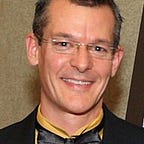Knowing and Not Knowing — Authoritarianism vs. Cultural Practices
The gap between current views toward China is vast. Approximately 65% of Americans, mostly older and Republican, hold an unfavorable view of China, up from 28% in 2006. But, I wonder how many of these individuals truly understand what they view unfavorably?
A saying by Confucius, “知之为知之,不知为不知,是知也” simply stated means, “One who knows, knows; One who does not know, does not know. Wisdom is knowing the difference.”
My opinions come from speaking and reading Chinese for 40 years, living and working over 20 years in China, Taiwan & Hong Kong, holding a BA in Mongolian Studies from a Chinese university, and befriending and building relations with ordinary Chinese citizens. Some of which have endured well over 30 years.
So, why do we interpret the Chinese move to save face as authoritarian? Perhaps we have no way to understand it. The Chinese expression, 家丑不可外扬, “The ugliness at home should not be exposed” supports our idea of, “Don’t hang your dirty laundry out for all to see.”
Over thousands of years, tradition and culture indelibly color the history, language, and actions of the Chinese people. Like, the Chinese people do not voluntarily share personal failures or weaknesses with friends, and especially not with strangers. From a national perspective, they act similarly, regarding their country, by protecting national face, which reflects in their families and ancestors.
From the Chinese view, saving face is in line with the traditions of Confucianism. Not unlike the idea that balance is a natural outcome, and conflicts work themselves out with little to no intervention, which is in line with the traditions of the Tao.
Yet in an environment, like the US, that does not understand or practice such ideas, they are easily misconstrued and attacked as insinuating something dark.
Things are relative, but when taken out of context, they can effortlessly manipulate and fool the ignorant. Let’s remember, there are two sides to every coin.
After reading an article by a New York Times journalist of Chinese descent, I was surprised at the troublesome way that he went about getting a story in China. His means to an end? Catch someone on a cigarette break! And that’s only men.
The main quote of the story from Mr. Bruce Xu follows:
“America is better than China,” he said. It’s cleaner, and the people are better mannered. In the United States, “you can’t even smoke,” he said. “No matter which floor you live on, you have to run downstairs and go outside to smoke.”
Did you notice, ‘It’s cleaner, and the people are better mannered.’ is not in quotations? Is this the author’s addition and not from Mr. Xu?
Indeed, I would not think it unusual to hear a Chinese person say such things since it’s not entirely untrue. But it carries a different and subliminal effect sandwiched between quotes.
In the Chinese mind, it is not saying, “My country is no good.” It merely points to things as different somewhere else. This statement offers insight into a worldview that does not judge, instead seeks harmony in different situations.
Note the big glass ashtray full of cigarette butts in the photo of Mr. Xu sitting at his desk. The ashtray leads me to believe that he prefers staying inside to smoke.
People who speak out against China, Chinese practices, and worldviews, should first have a strong foundation of knowledge in the history, culture, and language of China. Without such a foundation, it quickly leads to misunderstandings or, worse yet, fosters discord amongst those easily influenced.
By heeding the angst of persons who spew hate toward China, it ignites the kindling of ignorance. With no direct experience with China, unknowing individuals become easy prey.
Though some may have lived in China or engaged with China, they likely do not speak the language with relative fluency, nor have they established longstanding interpersonal relations with Chinese citizens within the constraints of the Chinese culture or language. For these individuals, it is easy to fall into the toxic and distorted dialogue of rooting out a new US national enemy. We fear that which we do not understand.
But what separates the knowing from the unknowing individual? Personal experience. Experience brings perspective and understanding through interacting with, living with, and communicating with those with whom we find fault. We, naturally, learn to see the world through their eyes.
Through perspective and understanding, one more correctly deduces scenarios working from a vaster database of information. By doing so, it allows for a better outcome, less biased views, and tighter margins of understanding.
Without a deep understanding of language and culture from the context where these conversations come, and when taken out of the cultural setting, they are easily misconstrued and engage to support frivolous ideas.
Fostering balance in perspective is perhaps the most challenging task when the average person is in line to push the blame onto those deemed the new national enemy. Individuals hop on the bandwagon in droves to save their own national face.
Let’s be careful not to judge actions as wrong when others do them and right when we do them. Insight is key. Relations between the US and China require US-based bi-culturally sensitive individuals with skillsets specific to relationship building in China. Allowing people to spearhead discussions that do not have this understanding of China will only drive us into a ravine.
